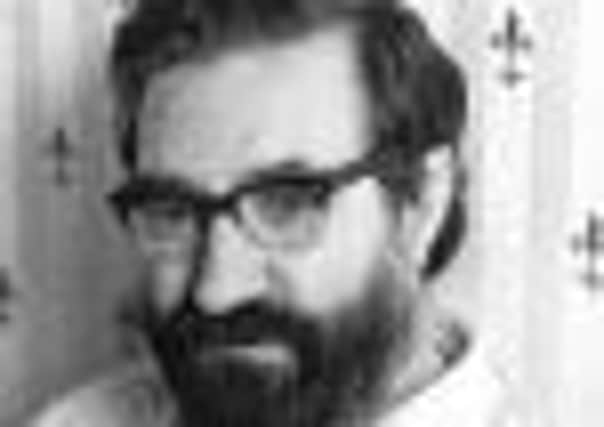Dignified poet’s spare style put plain speech in print


The last couple of years have seen the loss of important and influential Yorkshire poets: Harold Massingham, creator of a flinty rhetoric that was a combination of Mexborough front-room talk and Anglo Saxon verse, Glyn Hughes, an endlessly creative spirit who kept writing to the end, Anna Adams, a quiet, profound presence on the Yorkshire scene for decades, and Pete Morgan, a troubadour and formalist who recognised the value of the voice in written and performed language.
Now, sadly, we must add the name of Cliff Ashby to the list, and in a sense he gathers together all the qualities of those writers. It’s a real shame that Ashby wasn’t better known to a wider circle of readers. Throughout his writing life, he tried to capture the idea of plain speech in print, a task that poets and novelists in Yorkshire and beyond always wrestle with.
Advertisement
Hide AdAdvertisement
Hide AdI remember meeting Cliff at the BBC in Manchester many years ago when we were recording poems for a radio show: I was impressed by his dignity and by the spare language of his poems and since that encounter I followed his work, mentioning him whenever I could.
Ashby was born in Norfolk in 1919. His father, a Methodist minister, constantly moved between parishes, giving young Cliff a literal and spiritual rootlessness. It made him wary of organised religion; as he wrote in his poem A Wise Dog: “A wise dog raises his paw when his God appears. Precaution is the order of the day.” For him, poetry could attempt to take the place of chapel or church.
He left school at 13 and it’s possible his nascent poetic talent might never have been nurtured but for the fact that in the Second World War he became a conscientious objector and met other similarly-minded people at the Peace Pledge Union’s Community farm in Essex. There, radicals like John Middleton Murry encouraged him to write.
He worked mainly as a farm worker, before settling in West Yorkshire where he became a window-dresser in Leeds. After his retirement he lived in Heckmondwike on the periphery of that group of Pennine Poets gathered around the redoubtable Mabel Ferrett, who also died last year.
Advertisement
Hide AdAdvertisement
Hide AdCliff Ashby published three collections of poems from the late 1960s onwards: In the Vulgar Tongue, The Dogs of Dewsbury and Lies and Dreams.
He was also a novelist and The Old Old Story and Howe and Why are well worth searching out. Much of his poetry, though, was quite remarkable, particularly his two sequences The Tied Cottager and Lies and Dreams.
The latter is his masterpiece, I reckon. It’s ambitious, attempting to describe a West Yorkshire of the Mind at the same time as it tackles Ashby’s perennial questions about the purpose of religion and the worth of poetry.
In one section, the poet visits the Cow and Calf rocks above Ilkley to rail against a God that won’t listen: “I have come to this place, Solitary, except for/Sheep and grouse,/For words have to be said./Here, beyond the Cow and Calf/Among the heather and bilberry/In this desolate spot/Secrets may be mentioned./Here, where Bradford/Hangs a dirty cloud/On the horizon/I may shout and stammer/Throw my arms about…” Shouting God out of the sky, indeed.
Advertisement
Hide AdAdvertisement
Hide AdLike Harold Massingham, he worked in a mix of vernacular and high language, like Pete Morgan he revelled in the voice, like Anna Adams he was a quiet presence that you couldn’t miss, and like Glyn Hughes he carried on being creative almost to the end, his last pamphlet, A Few Late Flowers coming out in 2008.
I urge you to seek out Cliff Ashby’s work; I promise that you won’t be disappointed.
Life and work of Cliff Ashby
Cliff Ashby, born 1919, died 2012.
Plain Song, his collected poems is published by Carcanet.
In Martin Seymour-Smith’s Guide to World Literature (1975) Cliff Ashby was described as “probably the most powerful, spare poet of his generation”.
His last pamphlet, A Few Late Flowers and A Cliff Ashby Sampler are available at www.happenstancepress.com
Advertisement
Hide AdAdvertisement
Hide AdThe Tied Cottager, written in simple, short, almost unpoetic lines, gives the reader an insight into the grinding poverty of the agricultural worker set in unforgiving landscapes: ‘There was beauty,/Yes, but I/Never could shout/God out of/The sky./Those gloomy strides/Over trout/Strewn stream…’